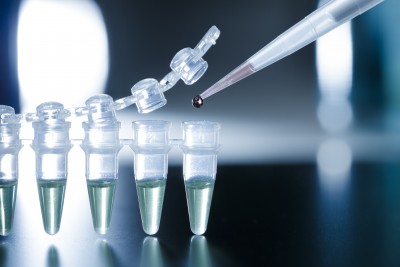Expectant parents face a lot of medical jargon when researching various topics associated with pregnancy. In today’s era, when a simple search on the Internet leads to an overwhelming amount of conflicting information, it’s important to understand what exactly you’re reading.
When it comes to cord blood banking, the Cells For Life team aims to simplify these medical terms so as not to confuse or mislead parents-to-be. We’ve broken down the four key phases of medical research, so you can better understand whether the information you are receiving is based upon scientific facts, anecdotal evidence, or something in between.
Anecdotal Evidence
Anecdotal Evidence is scientifically defined as “information that is not based on facts or careful study.” It is often constructed from accounts of personal experience, where information represents a conclusion composed from generalization.
The information may have been based on casual indications rather than scientific analysis. It is commonly passed along by word-of-mouth, but is not documented scientifically.
Pre-Clinical Development
Pre-clinical development – also referred to as preclinical studies and nonclinical studies – refers to the stage of research that takes place before clinical trials.
The key objective of pre-clinical studies is to determine the ultimate safety profile of a product or treatment. This is commonly done through animal testing, during which important feasibility, repetitive testing and drug safety data is gathered.
This stage of research is vital because it determines whether safe human testing may commence.
Clinical Trial
Clinical trials refer to the tests completed in medical research and drug development, which determine safety and efficacy. Efficacy, as it applies to medicine, is the ability to provide a clinically measurable effect, preferably beneficial.
At Cells For Life, we’re constantly following the latest clinical trials associated with stem cell research. While medical research has shown that umbilical cord blood is a very valuable source of stem cells and has been used to treat numerous diseases, there are many clinical trials currently taking place to determine further uses for stem cell transplants. Of course, treatments being tested in clinical trial are not guaranteed to be successful. The outcome can prove the treatment is helpful, or it can prove the treatment does not bring beneficial results.
Routine Use
The information gathered from the clinical trial stage is used to help clinicians determine risks and benefits of treatments. The treatments that make it through this phase are considered evidence-based. However, while evidence shows a specific treatment works, it is routine usage that proves the treatment successful in certain circumstances. In reality, most treatments are used based on previous experience and tradition.
Stem cell transplants are becoming more common for treating a range of diseases. They’re the standard therapy for patients with bone marrow diseases; and while stem cell transplants are commonly used in the form of allogeneic treatments, they’re also used for autologous treatments.
We encourage you to refer back to this post in your own research, to help you sift through the myths and misconceptions associated with cord blood banking. To learn the facts, attend one of our webinars or group information sessions.

